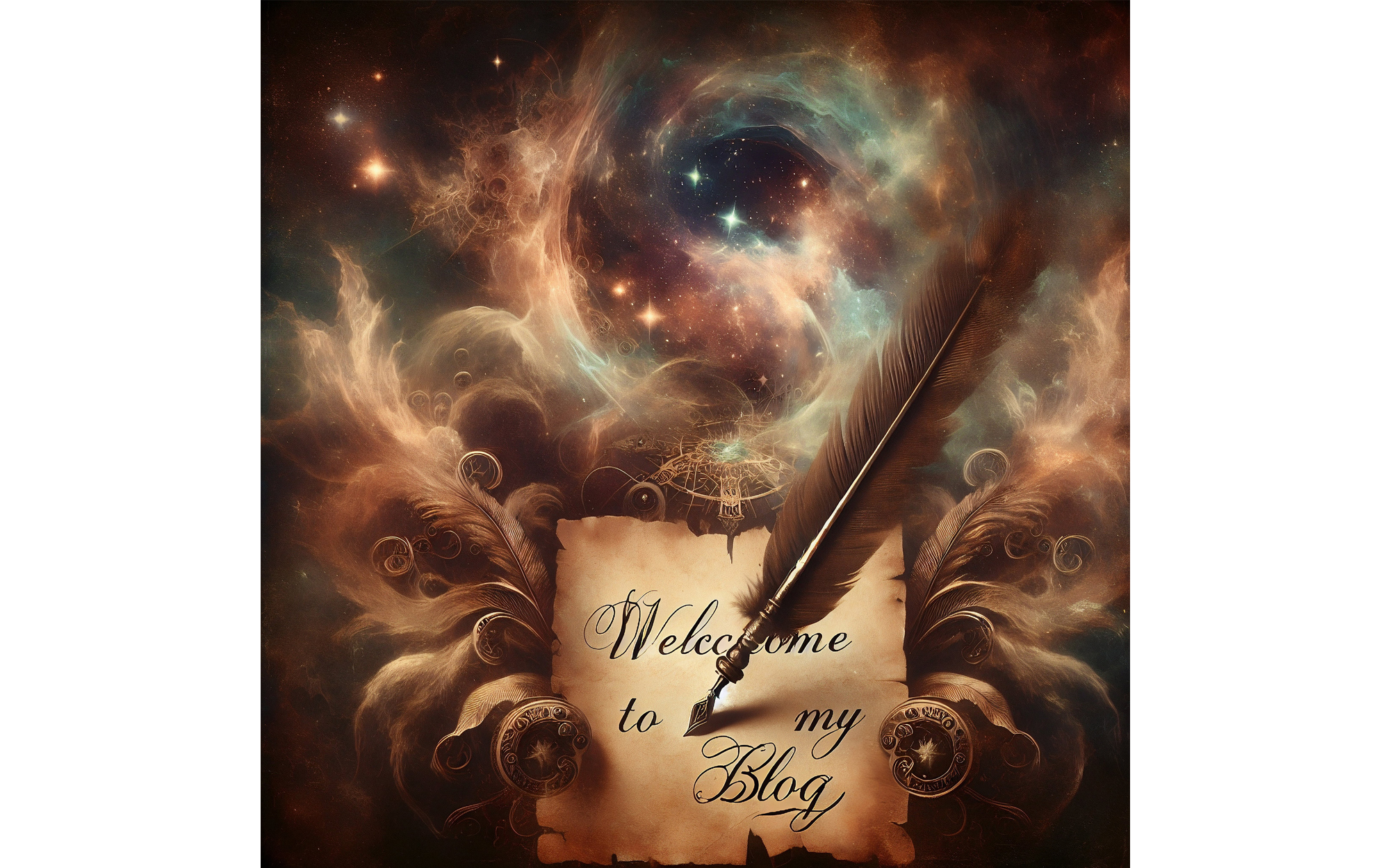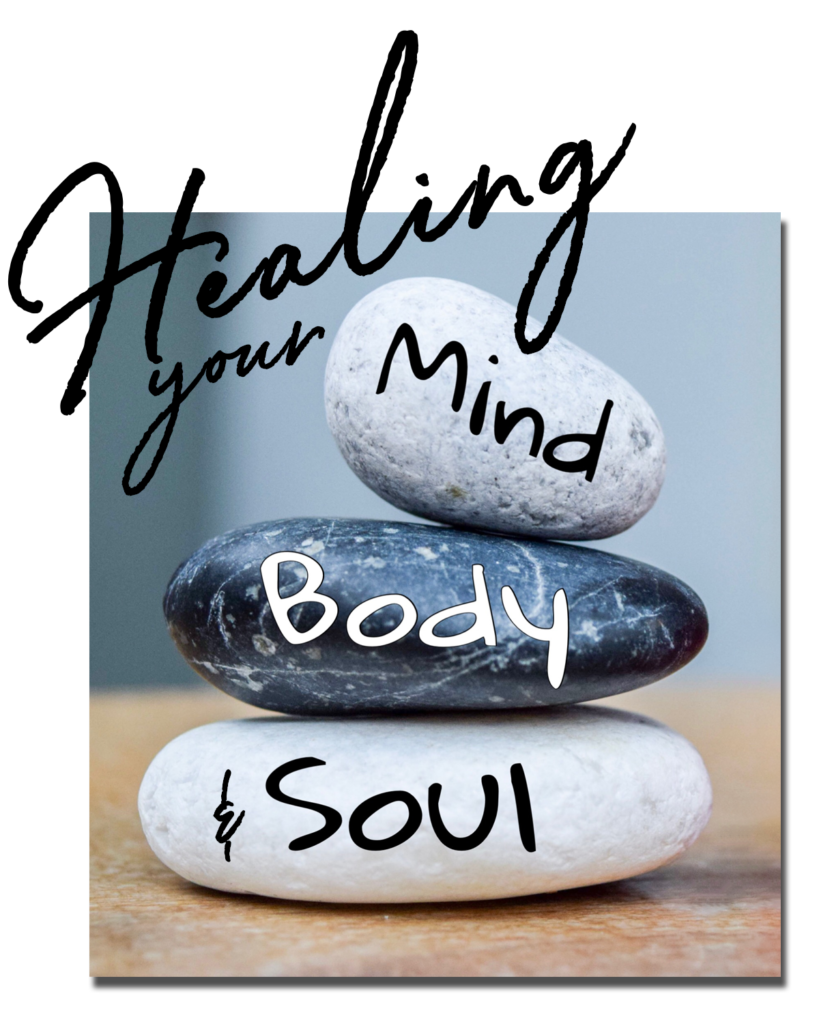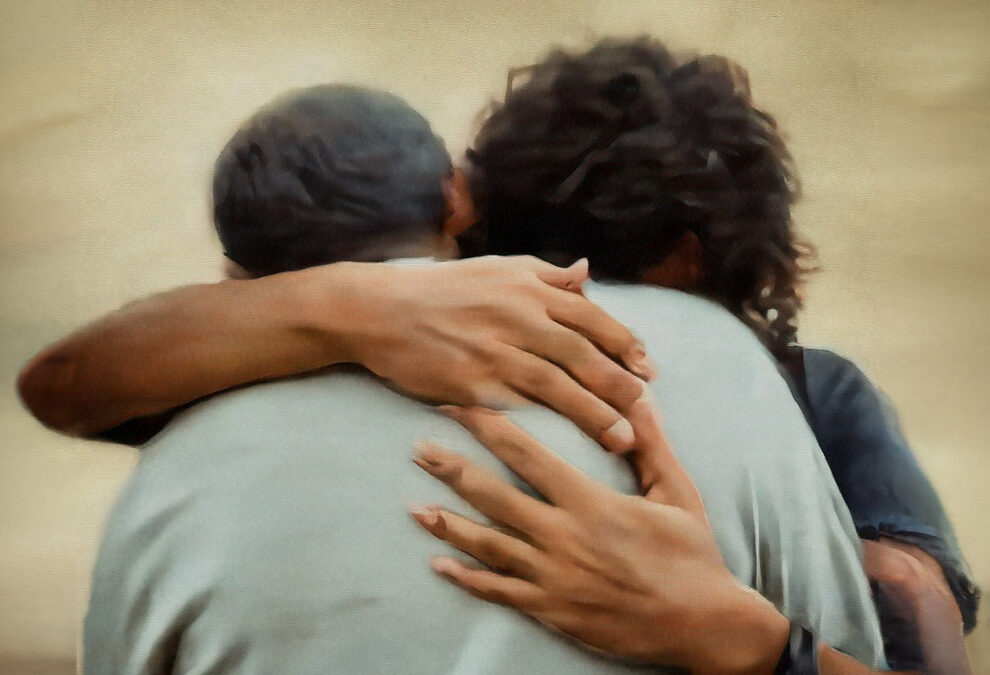
The Healing Power of Forgiveness
The healing power of forgiveness is a transformative force that can liberate you from the chains of past hurts. Release the heavy burden of resentment and open your heart to peace and healing.
The Healing Power of Forgiveness: Reclaiming Your Light
“The weak can never forgive. Forgiveness is the attribute of the strong.” – Mahatma Gandhi
Understanding the Healing Power of Forgiveness 
For many of you, hearing “Forgive them” can feel like a slap in the face, but please, hear me out. This message doesn’t come lightly. I’ve been where you are—hurt, betrayed, discarded like yesterday’s trash. And yes, it hurt deeply. The sting of betrayal and the ache of abandonment can be soul-crushing. But the transformative power of forgiveness is profound and liberating. It’s like a gentle balm that soothes the deepest wounds, allowing your heart to mend and your spirit to soar once more.
Some of you have experienced pain far deeper than mine, betrayals that seem utterly unforgivable. I understand and I’m sorry you had to experience this pain. Just take a moment—close your eyes and consider how living in the shadow of that pain has served you. I’m guessing it hasn’t been a source of strength or comfort.
Instead, it has likely stirred bitterness, hardening your heart and dimming your spirit. The joy, the vibrant light within you meant to shine brightly and warm the world around you, has been dulled. It’s as if a storm cloud has taken permanent residence over your soul, shading everything you encounter. This relentless focus on the wrongs done to you is not only stealing your light but allowing someone else’s actions to control your life.
Reliving the betrayal and pain over and over again only keeps you trapped in a cycle of suffering. For more insights on how to release this pain, you may find my blog post, “Letting Go; Healing Our Wounds,” helpful.
You Deserve the Healing Power of Forgiveness
You deserve to be free—a true, radiant version of yourself. Holding onto that pain, letting it fester, only binds you to the very anguish you yearn to escape. You might think forgiveness is a gift to the one who hurt you, but in reality, it’s the key to unlocking your own shackles.
Imagine, just for a moment, how it would feel to let that heavy burden drop from your shoulders. To step out of the shadow and into the light. Your soul finds peace, your heart softens, and your spirit begins to illuminate once more. The world, aching for your light, suddenly starts to look a little brighter.
The Journey of Healing Through Forgiveness
Forgiveness isn’t easy, nor does it mean condoning or forgetting the harm caused. It’s a deeply personal journey—one where you reclaim your power, redefine your story, and rediscover your light. In this act of grace, you set yourself free, allowing your soul to breathe and your heart to sing again.
5 Steps to Embrace the Healing Power of Forgiveness
Practice Self-Compassion
Take a deep breath and acknowledge your pain. Understand that your feelings are valid. Give yourself the kindness you would offer a dear friend. Healing isn’t linear; it’s a journey with ups and downs.
Practicing self-compassion means being gentle with yourself. When we experience hurt and betrayal, it’s easy to fall into self-blame or harsh self-criticism. Instead, recognize that you are human and it’s okay to feel hurt. Treat yourself with the same kindness and patience you would offer someone you care deeply about. This approach not only soothes your emotional wounds but also creates a nurturing environment for healing.
To elaborate further, self-compassion involves three main components: self-kindness, common humanity, and mindfulness.
 Self-Kindness in Forgiveness
Self-Kindness in Forgiveness
Being warm and understanding toward yourself when you suffer, fail, or feel inadequate, rather than ignoring your pain or being self-critical, is crucial. Instead of harshly judging and criticizing yourself for various inadequacies or shortcomings, self-compassion means you are kind and understanding when confronted with personal failings. Remember, the power of forgiveness isn’t about absolving others; it’s about liberating yourself from the grip of past hurts. You may try to change in ways that allow you to be healthier and happier, but this is done because you care about yourself, not because you are worthless or unacceptable as you are.
Common Humanity in Healing through Forgiveness
Recognizing that suffering and personal failure are part of the shared human experience. Instead of feeling isolated when things go wrong, it helps to remember that you are not alone in your suffering. Everyone goes through tough times, and everyone experiences failure at some point. This awareness can reduce feelings of isolation and self-pity, making it easier to be kind to yourself.
Mindfulness in the Healing Power of Forgiveness
Holding your painful thoughts and feelings in balanced awareness, rather than over-identifying with them or trying to suppress them. This involves being aware of your thoughts and emotions without judgment, allowing yourself to feel and express them without being overwhelmed. Mindfulness requires that we not “over-identify” with thoughts and feelings, so that we are caught up and swept away by negative reactivity. It’s about acknowledging your feelings and allowing yourself to feel them without becoming consumed by them.
Building Resilience Through Self-Compassion
Moreover, self-compassion helps to build resilience. When you are compassionate to yourself, you are more likely to recognize when you need support and to seek out resources that can help you cope. This might include reaching out to friends or family, seeking therapy, or engaging in activities that bring you joy and fulfillment.
Fostering a Positive Outlook
In addition, self-compassion can foster a more positive outlook on life. By being kind to yourself, you can reduce the impact of negative emotions and increase your overall sense of well-being. This doesn’t mean ignoring or suppressing negative emotions, but rather acknowledging them and addressing them in a healthy and constructive way.
Self-Compassion and Responsibility
Finally, self-compassion is not about letting yourself off the hook or avoiding responsibility. It’s about recognizing your humanity and treating yourself with the same care and concern that you would offer to others. It’s about being your own ally rather than your own worst critic. By practicing self-compassion, you create a supportive inner environment that allows for growth, healing, and transformation.
Understand the Why in the Forgiveness Journey
Delve into the reasons behind the actions of those who hurt you. This doesn’t mean excusing their behavior, but understanding their perspective can sometimes bring clarity and soften your resentment. It allows you to see them as flawed humans rather than symbols of your suffering.
Gaining Insight into the Why
When we try to understand the why, we are not looking to justify the actions that caused us pain but to gain insight into the underlying reasons. This could involve recognizing that the person who hurt you may have acted out of their own pain, fear, or insecurity. By doing so, you shift your focus from seeing them as perpetrators to viewing them as imperfect individuals with their own struggles. This shift can reduce the intensity of your resentment and open the door to empathy and forgiveness.
As I became more enlightened and aware of the human condition through my spiritual journey, I found it easier to forgive. I now feel compassion for those who hurt me, imagining what they must have gone through in their own lives to cause such pain to another. The mantra, “hurt people, hurt people,” is unfortunately true. However, “healed people, heal people,” and that’s why I share this blog with you today.
The Spiritual Perspective
If you look at it from a spiritual standpoint, consider that every soul is on its own unique journey, learning and evolving through various experiences. The person who hurt you may be grappling with their own spiritual lessons and challenges. Their actions, while hurtful, might stem from unresolved issues or karmic patterns that they are yet to overcome. By viewing their actions through a spiritual lens, you may find it easier to cultivate compassion and forgiveness.
Recognizing Inner Turmoil
Recognizing that their behavior is a reflection of their own inner turmoil and not a measure of your worth can help you release the hold of resentment and move towards a state of peace and understanding.
Learning and Growth Through Forgiveness
Sometimes, our soul needs the lessons brought by those who hurt us to foster growth and evolution. This perspective helps us see the interconnectedness of our experiences and the shared journey of healing and personal development.
This was true for me. My most recent betrayal, though excruciatingly painful at the time, became a profound gift. It broke my heart wide open, allowing the light of God and the love of my life to enter. Through this experience, I discovered the truest love of all: self-love. What once felt like a devastating wound transformed into a pivotal moment of healing and empowerment, teaching me to embrace my worth and stand in my power.
Embracing Self-Love Through Betrayal
Every betrayal I experienced in my life was a steppingstone to get me where I am today. I had to face betrayal repeatedly throughout my life to finally grasp the lesson of self-love and the importance of standing in my own power. These painful experiences have ultimately led me to a place of profound personal growth and spiritual enlightenment.
Now, I understand that each betrayal was not just a wound, but a crucial part of my journey toward self-empowerment and inner peace. Embracing self-love has transformed my perspective, allowing me to see these betrayals not as setbacks, but as essential steps in my evolution.
Establish Boundaries as Part of Forgiveness
Forgiveness doesn’t mean you have to allow that person back into your life. Set healthy limits that protect your well-being. These boundaries are acts of self-respect, ensuring you don’t return to a harmful situation.
Setting boundaries is crucial in protecting your emotional health. This means deciding how much contact you want to have with the person who hurt you or setting clear guidelines on what behaviors you will no longer tolerate. Boundaries are not about building walls but about creating safe spaces where you can heal and grow without the fear of being hurt again. They are essential for maintaining your peace and ensuring that you prioritize your own well-being.
How to Establish Boundaries for Healing
Setting boundaries involves clear and honest communication about your needs and limits. It’s about defining what is acceptable and unacceptable behavior in your interactions with others. Boundaries help create a sense of safety and predictability, which is vital for emotional healing and well-being.
Why Boundaries Are Important in Forgiveness
– Protect Emotional Health: Boundaries help safeguard your mental and emotional well-being by preventing further harm and reducing stress.
– Promote Self-Respect: Setting boundaries is a way of valuing yourself and recognizing your right to be treated with dignity and respect.
– Facilitate Healing: Clear boundaries create a safe environment where you can focus on your recovery and personal growth without the constant threat of being hurt again.
– Encourage Healthy Relationships: Boundaries help define healthy interactions, promoting mutual respect and understanding in relationships.
– Prevent Resentment: By clearly stating your limits, you avoid the buildup of resentment that can occur when your needs are overlooked or violated.
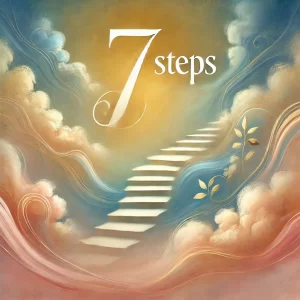 7 Steps to Establish Boundaries in Forgiveness
7 Steps to Establish Boundaries in Forgiveness
1. Identify Your Needs:
– Reflect on what you need to feel safe and respected in your relationships.
– Determine which behaviors are unacceptable and must be addressed.
2. Communicate Clearly:
– Express your boundaries in a straightforward and assertive manner.
– Use “I” statements to convey your needs without blaming or criticizing the other person (e.g., “I need some time alone to process my feelings”).
3. Be Consistent:
– Maintain your boundaries consistently to reinforce their importance.
– Avoid making exceptions that could undermine your efforts to protect yourself.
4. Use Assertive Language:
– Be firm yet respectful in your communication.
– Avoid passive or aggressive language that could lead to misunderstandings or conflict.
5. Anticipate Pushback:
– Understand that not everyone will respect your boundaries initially.
– Stay firm and reiterate your limits as needed, without feeling guilty for prioritizing your well-being.
6. Seek Support:
– Surround yourself with supportive friends, family, or a therapist who can reinforce your efforts and provide encouragement.
7. Self-Care:
– Engage in activities that nourish your body, mind, and soul to strengthen your resolve and maintain your boundaries.
Here are a few examples of boundaries:
Time Boundaries: “I need some alone time after work to unwind.”
Emotional Boundaries: “I cannot discuss this topic right now; it’s too upsetting for me.”
Physical Boundaries: “Please respect my personal space and do not touch me without my permission.”
Communication Boundaries: “I prefer to be spoken to respectfully, without yelling or harsh words.”
By establishing and maintaining boundaries, you create a healthy environment for yourself where healing and personal growth can thrive. These boundaries are a testament to your self-respect and a crucial step in reclaiming your peace and well-being.
Write it Out to Heal Through Forgiveness
Writing can be a powerful tool. Compose a letter to the person who hurt you, pour out your emotions—the anger, the sadness, the betrayal. You don’t have to send it. The act itself can be healing, helping you process and eventually release the hold these emotions have over you.
Writing a letter allows you to express your feelings without the pressure of confrontation. It provides a safe space to articulate your pain, anger, and disappointment. As you write, you may find that putting your emotions into words helps to clarify your thoughts and feelings. It’s a therapeutic process that can lead to emotional release, helping you to let go of the negative energy that has been weighing you down. The goal is not to deliver the letter but to use it as a tool for self-healing and understanding. Remember, the power of forgiveness lies in your ability to release and heal from the past.
There is great power in writing it out, letting it go, and then burning the letter. Watching the flames consume the words can be a symbolic act of release, a tangible way to let go of the pain and transform it into ash. The act of burning the letter represents the final step in freeing yourself from the emotional weight, creating space for peace and healing to take root.
Prompts to Help You Write
– Describe the Pain: “I felt deeply hurt when you…” “The betrayal made me feel…” “Your actions left me feeling…”
– Express Your Emotions: “I am angry because…” “I am sad because…” “I am disappointed because…”
– Acknowledge Your Experience: “This experience has made me realize…” “I learned that I need to…” “I understand now that…”
– Reflect on the Impact: Your actions affected me by…” “Because of what happened, I now feel…” “This has changed my view on…”
– Communicate Your Needs: “In the future, I need to feel…” “I need to set boundaries around…” “For my healing, I need to…”
– Seek Closure: “I am letting go of the hurt because…” “I forgive you because I need to move on from…” “I am choosing to release this pain so I can…”
– Find Gratitude and Positivity: “Despite the pain, I am grateful for…” “This experience has taught me…” “I am focusing on the positive aspects of…”
By addressing these prompts in your letter, you can explore the depth of your emotions and gain a clearer understanding of your experience. This process can help you release the negative energy and move towards healing and forgiveness. Remember, the goal is self-healing, and the act of writing itself is a step towards emotional freedom.
Write a Love Letter to Yourself
After you’ve processed the pain through writing a letter to the person who hurt you, it’s time to turn that same energy inward and write a love letter to yourself. This is a powerful exercise in self-love and affirmation, and an essential part of experiencing the healing power of forgiveness.
Take a quiet moment to sit down with a pen and paper. Write a heartfelt letter to yourself, celebrating all the beautiful and wonderful things about who you are. Reflect on your strengths, your kindness, your resilience, and all the qualities that make you uniquely you. Acknowledge the challenges you’ve overcome and the growth you’ve achieved.
In this love letter, remind yourself that you deserve only the best relationships—ones filled with respect, love, and kindness. Affirm that you are worthy of being treated with dignity and compassion, and that you will no longer tolerate being abused or mistreated.
Pour out your gratitude for your own courage and strength. Express how proud you are of yourself for the journey you’ve undertaken, and for the self-love you are now embracing. This letter is a testament to your journey, a recognition of your worth, and a commitment to your well-being.
Embrace Self-Forgiveness
Remember to include words of self-forgiveness. Acknowledge any mistakes or regrets you may have and offer yourself the same compassion and understanding you would extend to a dear friend. Remind yourself that you are human, and it’s okay to make mistakes. By forgiving yourself, you release any lingering guilt or shame, allowing your heart to heal fully and embrace the healing power of forgiveness. This act of self-forgiveness is crucial in your journey toward self-love and inner peace.
Then, make it a daily ritual to read this letter to yourself. By reading it every day, you reinforce these positive affirmations, reminding yourself of your value and the love you deserve. This exercise is a profound step in healing and reclaiming your inner light through the healing power of forgiveness.
Prompts to Help You Write Your Love Letter
-Celebrate Your Strengths: Reflect on the qualities you admire most about yourself and the strengths that have helped you overcome challenges in your life.
-Acknowledge Your Growth: Consider the obstacles you’ve faced and how you have grown from them. Reflect on the lessons you’ve learned throughout your journey.
-Affirm Your Worth: Think about why you deserve love, respect, and kindness. What makes you unique and valuable?
-Express Gratitude to Yourself: Celebrate what you’re most proud of in your life so far. Reflect on the courage and resilience you’ve shown, even in difficult times.
-Offer Words of Forgiveness: Identify any mistakes or regrets you’re ready to let go of. How can you show yourself the same compassion you would offer a loved one?
-Visualize the Future You: Envision the kind of relationships you want to invite into your life. Write affirmations that remind you of the love and happiness you deserve.
-Commit to Self-Love: Reflect on how you will continue to show love and kindness to yourself. What promises can you make to prioritize your well-being?
Example Opening Lines
“Dear [Your Name], today I want to celebrate the amazing person you are…”
“I am so proud of the strength and resilience you have shown through every challenge…”
“You deserve a life filled with love, joy, and respect, because you are worth it…”
A Note of Encouragement
Dear Reader,
As you sit down to write your love letter, take a deep breath and allow yourself to feel the love and kindness you deserve. This is your moment to celebrate the incredible person you are—your strength, your courage, and everything that makes you uniquely you. Don’t worry about finding the perfect words; let your heart guide your pen. It’s not about perfection—it’s about connection. Speak to yourself as you would to a dear friend who has been through so much yet continues to rise above. Remember, this letter is a safe space for you to pour out your truth, your gratitude, and even your forgiveness. Acknowledge your journey, your growth, and the beauty within you. Let the words remind you of your worth and affirm the love and respect you deserve in your life. Take your time, and when you’re done, read your letter aloud to yourself. Let the words sink in and become a daily reminder of your value and the incredible power of self-love.
With love and encouragement, Cindy
Focus on Gratitude and Positivity
Surround yourself with people who uplift and support you. Engage in activities that bring you joy and fulfillment. By shifting your focus to the good in your life, you create room for positivity to replace the bitterness.
Focusing on gratitude and positivity means actively seeking out the things in your life that bring you joy and fulfillment. This could involve spending time with loved ones who support you, engaging in hobbies that make you happy, or simply taking a moment each day to reflect on what you are grateful for. Gratitude shifts your mindset from what is lacking or painful to what is abundant and joyful. This practice helps to fill your life with positive energy, making it easier to let go of the bitterness and resentment.
Benefits of Focusing on Gratitude and Positivity for Healing
– Improved Mental Health: Regularly practicing gratitude has been linked to lower levels of stress, anxiety, and depression. It helps to cultivate a positive mindset that can enhance overall well-being.
– Enhanced Relationships: When you focus on the positive aspects of your relationships, you are more likely to strengthen your bonds with others. Expressing gratitude to loved ones can deepen your connections and foster mutual support.
– Increased Resilience: A positive outlook can make it easier to cope with adversity. By focusing on what you are grateful for, you build emotional strength that helps you navigate life’s challenges more effectively.
– Greater Life Satisfaction: People who regularly practice gratitude tend to feel more satisfied with their lives. They are more likely to notice and appreciate the abundance around them, leading to a more fulfilling and contented life.
How to Cultivate Gratitude and Positivity for Forgiveness
1. Keep a Gratitude Journal: Write down three things you are grateful for each day. This simple practice can help you focus on the positive aspects of your life and foster a sense of appreciation.
2. Spend Time with Positive People: Surround yourself with individuals who uplift and support you. Their positive energy can be contagious, helping to boost your mood and outlook.
3. Engage in Enjoyable Activities: Pursue hobbies and activities that bring you joy and fulfillment. Whether it’s painting, hiking, reading, or cooking, engaging in what you love can fill your life with positive energy.
4. Practice Mindfulness: Mindfulness involves being present in the moment and appreciating it fully. Practicing mindfulness can help you savor the positive experiences in your life and reduce the focus on negative thoughts.
5. Express Gratitude to Others: Take the time to thank the people in your life who have supported you. Expressing gratitude not only makes others feel appreciated but also enhances your own sense of well-being.
6. Reflect on Positive Experiences: Take moments throughout your day to reflect on positive experiences and achievements. Reliving these moments can help reinforce a positive mindset.
7. Limit Exposure to Negativity: Be mindful of your consumption of negative news, social media, or toxic environments. Instead, seek out positive and uplifting content that inspires and motivates you.
8. Practice Self-Compassion: Treat yourself with the same kindness and understanding that you would offer a friend. Self-compassion helps to foster a positive self-image and encourages personal growth.
Daily Gratitude Practices for Forgiveness
– Morning Reflection: Start your day by thinking of and writing down three things you are grateful for. This sets a positive tone for the day ahead.
– Gratitude Walks: Take a walk outside and notice the beauty around you. Reflect on the things in nature that you appreciate.
– Evening Gratitude: Before bed, think of three positive things that happened during the day. This can help you end your day on a positive note.
By actively focusing on gratitude and positivity, you create a mental and emotional environment that is conducive to healing and growth. This shift in perspective allows you to release bitterness and resentment, making room for joy, fulfillment, and inner peace.
Embrace Forgiveness for Personal Freedom
Remember, forgiveness isn’t about absolving others; it’s about liberating yourself from the grip of past hurts. It’s about stepping into your own power, reclaiming your light, and embracing the peace that comes with letting go. No one is perfect, certainly not us, and understanding that these individuals, too, are flawed and may act out of their own pain can be liberating. Forgiveness in this context is essential for personal freedom and peace.
May you find the courage to forgive and the strength to set your soul free. Embrace the light within you and let it shine brightly. The journey to peace and healing starts with a single step—choosing to let go and forgive. For help with letting go of the pain, you may enjoy my blog post, “Letting Go; Healing The Past.”
If you’re ready to let go of the past and step into a brighter future, explore the transformative potential of healing and forgiveness through spirituality. Together, within the words of this blog, we can unlock your true potential, restore your inner balance, and help you reclaim your light.
On a Personal Note: The Power of Prayer in Forgiveness
For me, the power of prayer for those who have forsaken me has been essential for my healing and inner peace. Forgiving those who betrayed my love and trust wasn’t easy. “Forgive them for they know not what they do.” This phrase became a guiding light, even though it was a tough pill to swallow. But remember, you are not forgiving them for their peace of mind, but for yours.
Living in the gloom and doom of my betrayer’s actions was like being trapped in a never-ending storm. The weight of their betrayal and the constant replay of their hurtful actions cast a shadow over every aspect of my life. It was as if their negativity had taken up residence in my heart, dulling my spirit and clouding my vision. Each day felt heavier, and the bitterness slowly consumed my joy.
Releasing the Storm Through Prayer and Forgiveness
Through prayer, I found a way to release this heavy burden. By praying for those who hurt me, I began to understand that their actions were a reflection of their own pain and struggles, not a measure of my worth. This perspective allowed me to cultivate compassion and empathy, recognizing that they, too, are wounded and hurting.
The act of forgiving them through prayer was transformative. It didn’t excuse their behavior or diminish the pain they caused, but it freed me from the chains of resentment. It allowed me to step out of the shadow of their actions and into the light of my own healing. My heart began to soften, my spirit started to lift, and I could feel my inner peace returning.
 Forgiveness a Gift to Yourself
Forgiveness a Gift to Yourself
Forgiveness became a gift I gave to myself. It was a way to reclaim my power and take back control of my happiness and well-being. It enabled me to move forward with a lighter heart and an open mind, ready to embrace the beauty of life without the weight of past hurts dragging me down.
In forgiving those who betrayed me, I discovered a profound sense of freedom and peace. I could finally breathe deeply, love fully, and live authentically, unburdened by the shadows of the past. This journey of forgiveness through prayer has been a cornerstone of my spiritual growth, teaching me that true peace comes from within and that we have the power to transform our pain into light.
Embrace Forgiveness and Reclaim Your Light
If you’re ready to let go of the past and step into a brighter future, I invite you to explore the transformative potential of forgiveness and healing. Together, we can unlock your true potential, restore your inner balance, and help you reclaim your light.
May you find the courage to forgive and the strength to set your soul free. Embrace the light within you and let it shine brightly. The journey to peace and healing starts with a single step—choosing to let go and forgive.
To delve further into letting go, read my blog post, “Letting Go: Healing The Past”
With a forgiving heart,
Cindy
Below are a few YouTube videos that you may find helpful on your forgiveness journey.
Sadhguru – How to Forgive Someone Who Hurt You [ An Insight on Forgiveness ] (youtube.com)
The Law Of Forgiveness (youtube.com)
Why You Should Forgive People Who Hurt You | Vishen Lakhiani (youtube.com)
A Channeled Note from Angel Guide Leam
Dear Friends,
Please let the burden of betrayal be the catalyst to believe that your betrayer gave you a gift. The gift of awareness that we all are guilty of betrayal in one way, shape, or form. We are all reaping what we sow. We are all learning for the ascension of our souls. Believe that a greater power is guiding you to a path of healing and peace. Understand that reliving your past is not serving you in any way. Reliving the dead past is like delivering dead energy to the living.
Deliver love and light to everyone, every day. Believe that no matter what, everything is going to be okay. Let everything go and know that love is always the answer. These are the keys to happiness.
In eternal love and light,
Leam
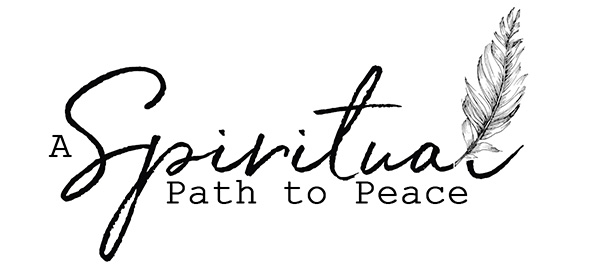
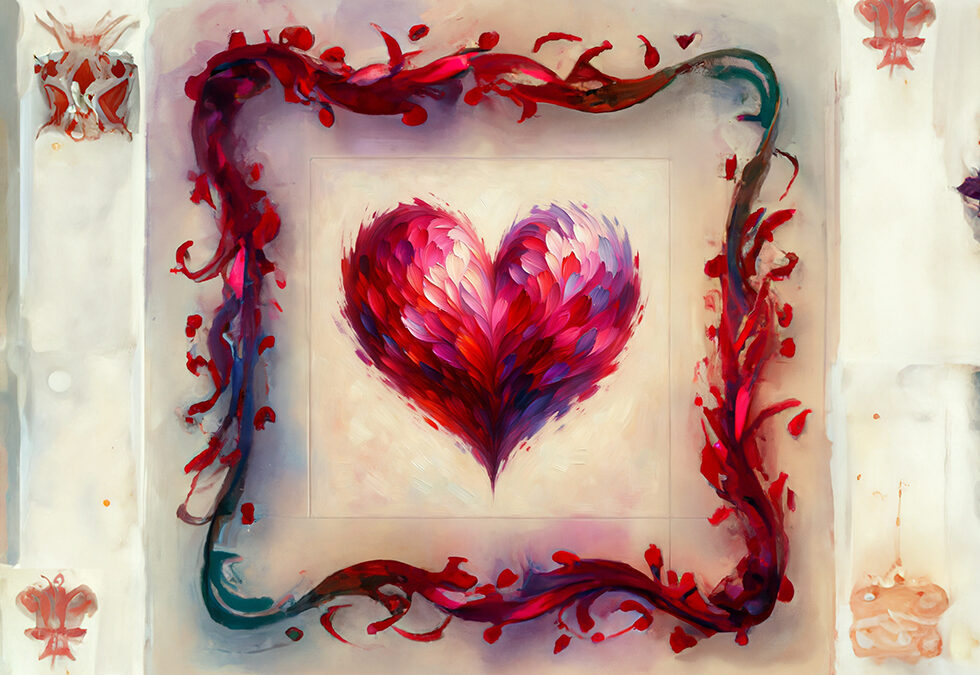



 A Constant Longing
A Constant Longing
 Betrayal and Loss
Betrayal and Loss

